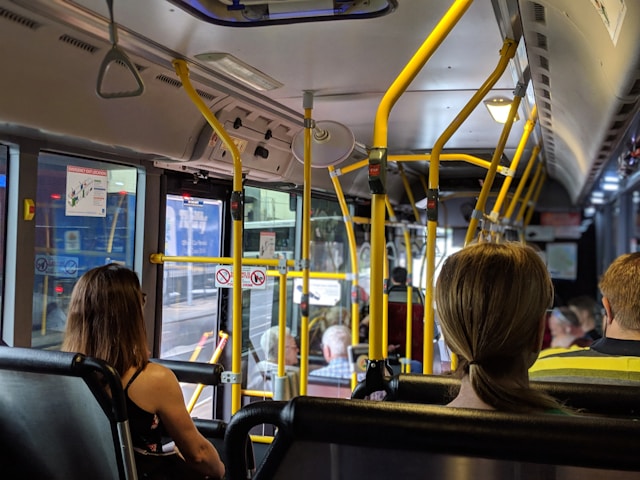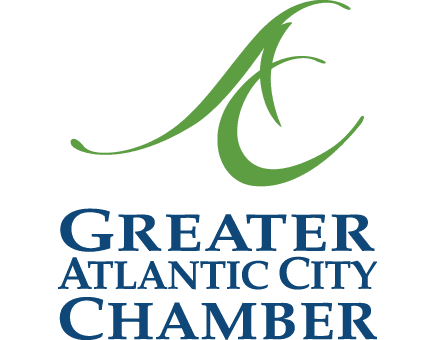Key Issues
Advocating for our Business Community
As the voice of Atlantic County’s business community, the Greater Atlantic City Chamber actively engages in public policy and economic development fronts that support the Greater Atlantic City region business environment. Local, state, and federal issues impacting businesses are identified by our members, staff, and committees. The Chamber collects and shares relevant information with its committees, which then make recommendations on policy positions. These recommendations are presented to the Executive Committee and ultimately to the Board of Directors for approval. Our proactive, collaborative approach ensures your voice is heard and your business interests are represented.
Connect
We create opportunities for businesses to build meaningful relationships and partnerships through networking opportunities and collaborative initiatives.
Inform
We provide relevant public policy information to help local businesses stay ahead.
Advocate
We represent the business community on key policy issues at all levels of government and provide access to policymakers.
Thrive
We foster a strong, sustainable business environment that supports long-term regional growth and success.

Building A Healthier Atlantic City
The Greater Atlantic City Chamber urges state policymakers to strengthen Medicaid, address pharmacy deserts, expand behavioral health and addiction treatment capacity, and invest in the social determinants of health—from housing and broadband to workforce and education.

Expanding Neighborhood Revitalization Tax Credits
The Greater Atlantic City Chamber urges expanding the Neighborhood Revitalization Tax Credit to increase funding, broaden eligibility, and protect current recipients. This will support stronger local economies and drive equitable neighborhood revitalization across New Jersey.

Supporting Improvements to the AC Convention Center
The Greater Atlantic City Chamber urges state support for upgrades to the Atlantic City Convention Center and an economic impact study of the proposed Meadowlands facility, emphasizing that continued investment is essential to protect the center’s $300 million annual economic contribution, thousands of jobs, and regional competitiveness.

Ensuring Representation in the CRDA
The Chamber supports amending N.J.S.A. 5:12-153 to require at least three CRDA Board appointees be Atlantic County residents. Though 83% of CRDA funds support Atlantic City, few members are local. Greater representation ensures decisions reflect community priorities and accountability.

Managing Atlantic City Cannabis Market
The Greater Atlantic City Chamber supports responsible cannabis industry growth but urges policies like license caps, spacing requirements, and a temporary pause on approvals to prevent oversaturation, protect existing businesses, and ensure the industry strengthens, not overshadows, Atlantic City’s economy and tourism.

Protecting Atlantic City Gaming
The Chamber opposes new casinos in North Jersey and New York, warning they could cut Atlantic City’s gaming revenue 20–30%, cause job losses, and force closures. With 23,000 casino jobs at stake, further expansion threatens tax revenue and recovery. Instead, efforts should focus on boosting year-round, non-gaming tourism.

Ensuring Budget Funding Equity
The Chamber supports fairer budget allocations for South Shore counties, which receive far below the statewide average in “line-item extras.” In 2025, they got just 2.05% of the non-statewide fund pool, limiting investment in infrastructure, education, and growth. Needs-based funding is essential for these counties to compete.

Expanding Film Tax Credits
The Chamber supports expanding film and media tax credits to live casino dealer studios, Atlantic City’s exclusive niche. This would create jobs, attract investment, and diversify the economy as online gaming exceeds $1.9 billion. Live dealer studios should be recognized as digital content production.

Supporting Farms and Fisheries
South Jersey’s farms and fisheries are cultural and economic pillars. The Chamber urges policymakers and investors to protect and grow them, ensuring jobs, food security, environmental quality, and opportunity for the future.

Expanding NJ Transit Service
The Chamber supports expanding NJ Transit services in South Jersey using Corporate Transit Fee funds. This would better connect workers and students to Atlantic City, Stockton, and Atlantic Cape Community College. Since South Jersey businesses pay CTF, improved local transit would fairly return value and strengthen mobility and infrastructure.



